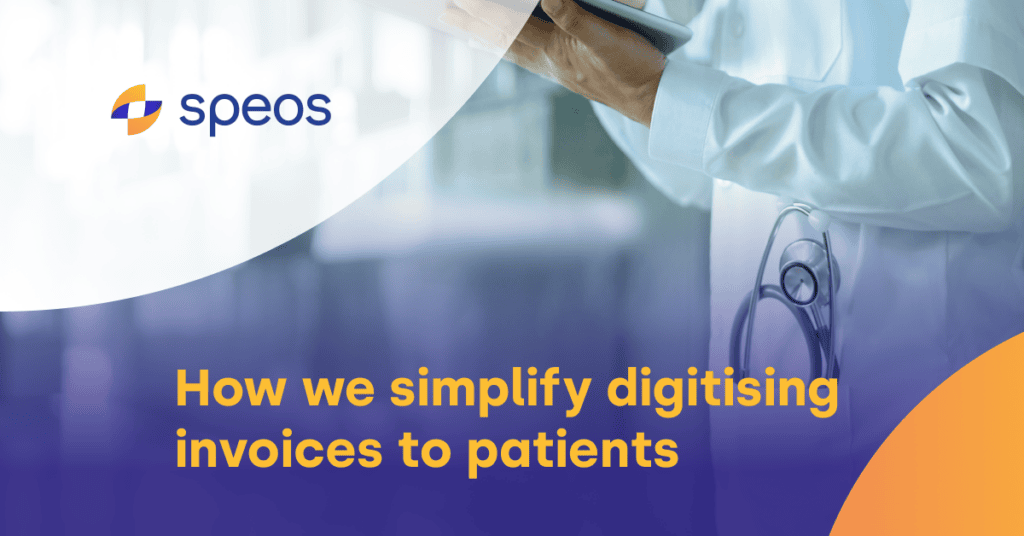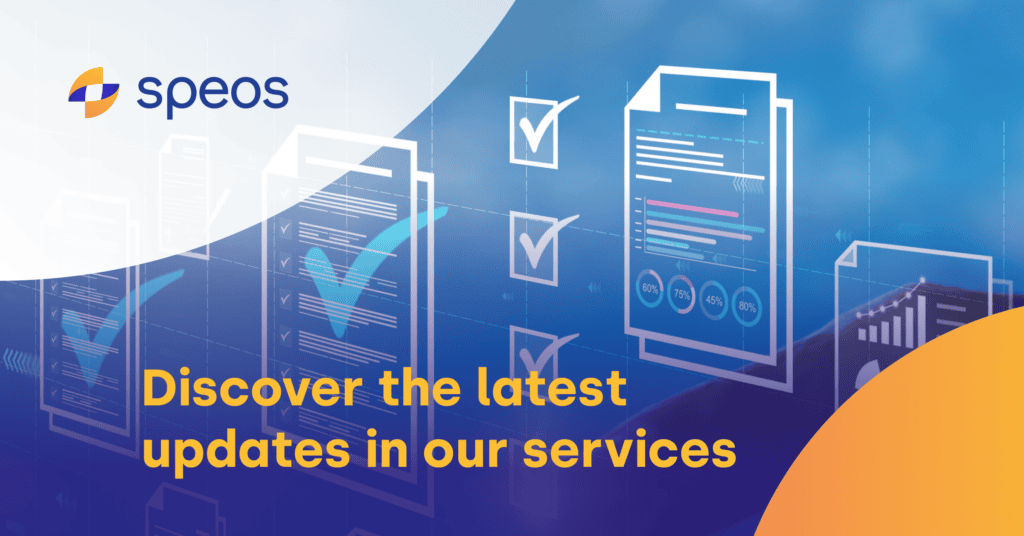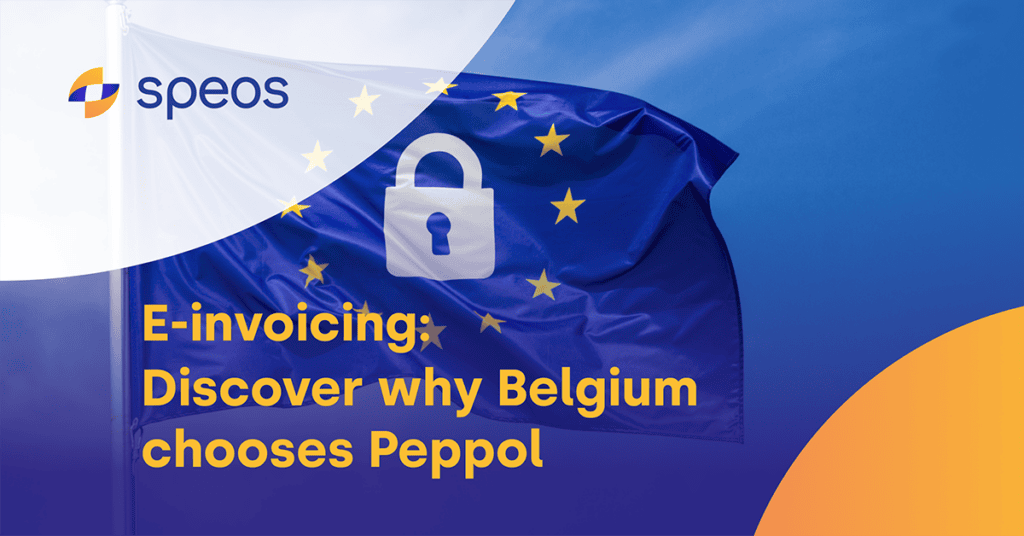From January 1, 2026, Belgian companies will have to adhere to a compliance regime on the digitalization of their invoices. The standard process of sending paper documents will be dematerialized through e-invoicing, with invoices sent via the secure and regulated Peppol network. E-invoicing offers many benefits. Moreover, you can start reaping those benefits before the measure officially takes effect. Speos can already implement an e-invoicing solution tailored to your needs.
What is e-invoicing?
Sending an email with an invoice in pdf format, sharing a link to a platform where the recipient can download an invoice … Those are fairly simple examples of e-invoicing. At its source, it refers to the dematerialization of invoice documents to make exchanging and doing business more efficient. In the process, traditional paper documents are replaced by electronic versions that can be further formatted and converted. E-invoicing basically means that a file is sent from machine to machine rather than from hand to hand.
On a more sophisticated level, e-invoicing refers to the distribution of documents through a secure and regulated network. This offers many benefits to companies, including speed and efficiency as the document will reach the recipient’s accounting system after only a few minutes. It also reduces the risk of errors because you need fewer manual actions. Moreover, the entire flow is transparent. For example, you can see when a document has been received, what steps have been taken, whether the format has changed… Sometimes it is even possible to give feedback, allowing you to immediately make adjustments when the recipient has a comment about an invoice.
What is Peppol?
Peppol is a secure and international network that allows companies to exchange business-critical electronic documents with everyone who is registered on the network. The name stands for Pan European Public Procurement On-Line. The original focus of Peppol was to send invoices to customers in the public sector, but it soon expanded to the private sector as well.
In Belgium, Peppol has been pre-selected to support the compliance regime around e-invoicing. As from January 1, 2026, using the Peppol network will be mandatory for B2B invoices, with no transition period. In doing so, our country is following a European directive that requires all EU member states to adopt such a system by 2028. The new system should help manage costs, protect revenue, and reduce the VAT gap. According to a European Commission report, all member states together have missed out on 60 billion euros of VAT income in 2021. Belgium has a share of 2.5 billion euros.
E-invoicing with speos
Guiding customers in their digital transformation, that’s our mission at speos. For this reason, e-invoicing must be part of our offering. It turns us into a one-stop shop, which is very interesting for companies that deal with complex and large volumes of invoices. Moreover, our system is agile and enables us to respond quickly. Our e-invoicing solution consists of diverse components that we use to efficiently address your needs.
Today, we offer all e-invoicing requirements in-house. To make this possible, we have recently acquired B2Boost, a Belgian company specialized in digitizing corporate processes. It provides us with all the expertise needed to support projects on a national and an international scale.
Do not wait until 2025
January 2026 may seem like a very distant future, but you need to start preparing in time to meet the mandatory compliance regime. Fortunately, thanks to our in-house Peppol expertise, speos can help your business to be compliant and enjoy the benefits of e-invoicing as from today. Especially when the majority of your volume consists of invoices between Belgian companies, it pays off to make the transition now. Moreover, there could also be a risk of long waiting periods for implementation among service providers next year.
As soon as you know the volume, the type of customers you send invoices to, and what output format you can generate, we map out a path to a solution. Depending on the complexity of transforming output files into Peppol formats, we determine the cost and implementation time.
Want to know more? Find out all about e-invoicing at speos here!





